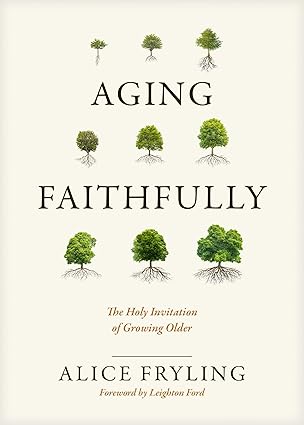
Have you ever messed up and thought, “How can God forgive me?” Can things change if you believe there is a heavy weight or a heavy hand ready to smack you down again at any time? What about when someone else messes up your life? Will God give you another chance to make things right? Are you trying to prove to God that you can make it right?
After my wife’s breakdown, our lives got pretty messy! Life got a lot more difficult, and trying to pick up the broken pieces and fixing them was not working. As a man and a mechanic, I thought this is what I needed to do: fix things. I thought that was my purpose. But some things just can’t be fixed or undone.
As I reflect back on my life and my circumstances, it seems those people who have really helped me always pointed me to Scripture. I’ve learned that what I really needed was what Jesus proclaimed: …the year of the Lord’s favor.” (Luke 4:10) What we often don’t fully grasp, what we need the most, is to learn that when Jesus came and died for our sins, He also gave to all of us – even those who hurt us – this new year of His favor. He treats us with undeserved mercy and grace.
Take a look at Psalm 103:10: “…he does not treat us as our sins deserve or repay us according to our iniquities.” God does not keep track of our failures or stumblings. We all have different abilities. We are different from each other in many ways. We are in part molded by our past, good and bad. God is not limiting our chances to make things right. Rather, because of our inabilities, He makes things right for us. Like simply handing us a white robe to put on, God freely gives us our faith as we put His righteousness. He makes us into a new creation. Not by us doing something, but we’re made new by the Holy Spirit. It’s His work in us. His timing.
This takes all the pressure off of me to perform, and replaces my inabilities with Jesus’ perfect ability, which was given to me on the cross. I see this as how God chooses to fix things. God’s Word says those who are baptized and believe in Christ are already brand new, redeemed, restored, chosen, forgiven, loved and many more promises all made to us by the Lord. The old self is buried, covered in newness like clean white robes, no longer stained. We have been bought and redeemed by the blood of Christ. Because we fail does not mean that God has failed. We need to think and speak just the opposite. Jesus has saved us in spite of our failure and this is good news for us. It is then, in our brokenness, God often shines brighter with His mercy and grace.
Today is the day to live in God’s favor. We are blessed because we are His children. Speak deeply His words into your minds and souls: “He chose me! I am His child and no one can snatch me from His hands! He dresses me in His Holy righteousness! All my sins are covered by Christ’s blood! I’ve been bought at a very high price! I am forgiven! I am valuable to Him! I’m not and never was a piece of junk to just throw away! I’m a new creation so He fully trusts me again to use my new life!”
Wow, He must really love me to put trust in me – I don’t deserve it. How can that be? Even those around me don’t love me like that. God looks at me differently than those in the world. When I think deeply of these promises from God and believe they are true, then oh, how my Joy comes from the Lord! I have a new life in Him! The old is gone so I must let it go.
Our ways are certainly not His ways. God is not giving you or me just another chance; instead He has given us His favor! This is much better than a chance! Don’t waste your energy anymore on the old. Leave it in the past, live your new life every year, every day and every hour, in God’s undeserved favor.
Yes, we do have God’s favor! When we believe it and know it in our hearts, then we can live it. His favor pours into us and then out of us into the lives of those around us. God’s love and glory are like the beaming light of the sun poking through the clouds. Our relationship with the Lord is restored by Jesus. It’s like our dead life being grafted into His life, when we abide in Him and remember what He has done for us. We put this truth into practice as He shows us what His undeserved love looks like. Forgiveness of our sins is the best gift ever! He lets go of our failures and sins – the very hurts that He took to the cross – and shows His love and favor to us.
We can then use what God has given us! This same mercy and grace, given to us to love and help others (2nd Cor 1:3-5). God’s Word is true. He knew what we needed before we were even born.
Consider Jesus’ words in Luke 4:18-19: “The Spirit of the Lord is on me, because he has anointed me to proclaim good news to the poor. He has sent me to proclaim freedom for the prisoners and recovery of sight for the blind, to set the oppressed free, to proclaim the year of the Lord’s favor.” This good news, that Jesus proclaimed in the temple all those years ago, still applies: His favor! When we abide in Him, we are released from oppression, our spiritual blindness is recovered and our poor captive spirits are freed. He gives us living hope in a new life under His reign. Today! Jesus our Savior said in Luke 4:21, “Today this scripture is fulfilled in your hearing.” We can’t fix or change our past, but today we are free as a child of God to daily live a new future in God’s favor.















